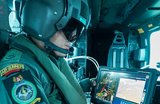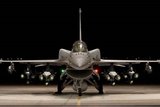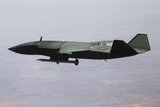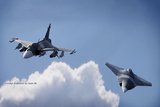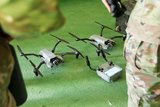Philippines receives two T129 ATAK helicopters from Turkey
The T129 Atak is a tandem two-seat, twin-engine helicopter designed for attack and reconnaissance missions. (Photo: Philippine Air Force)
The Philippine Air Force (PAF) has received two T129 ATAK helicopters from Turkey at the 15th Strike Wing headquarters in Sangley Point, Cavite.
The two aircraft will be used alongside the PAF’s armed light observation and transport helicopters, enhancing the combat operational capability of the force and addressing capability gaps in urban warfare.
The units were the fifth and sixth attack helicopters acquired in a US$280 million deal between Turkey and the Philippines. Its sister aircraft were the first helicopters Ankara delivered to a foreign country.
The T129 ATAK fleet deal was part of the Horizon 2 phase of the Armed Forces of the Philippines’ Modernization Program, a 300 billion Philippine peso ($5.2 billion) acquisition project to update the country’s military posture.
The T129 Atak is a tandem two-seat, twin-engine helicopter designed for attack and reconnaissance missions. The T129, developed from the Leonardo A129CBT, incorporates new engines, avionics, electro-optics, weapons, a modified airframe, an uprated drivetrain and a new tail rotor.
Related Equipment in Defence Insight
More from Air Warfare
-
![World Defense Show 2026: L3Harris to achieve full-rate production of Viper Shield soon]()
World Defense Show 2026: L3Harris to achieve full-rate production of Viper Shield soon
L3Harris has completed the production candidate software load for its Viper Shield airborne electronic warfare system and is conducting sea trials with its VAMPIRE counter-drone system.
-
![Singapore Airshow 2026: CCA manufacturers eye growing opportunities in Asia-Pacific]()
Singapore Airshow 2026: CCA manufacturers eye growing opportunities in Asia-Pacific
Companies offering collaborative combat aircraft say there is a massive potential for countries adopting the capability in the Asia-Pacific region.
-
![Singapore Airshow 2026: Saab eyes “share” in future fighter market, targets 2027 CCA demo flight]()
Singapore Airshow 2026: Saab eyes “share” in future fighter market, targets 2027 CCA demo flight
The Swedish government is expected to make a decision on the next steps of the Future Fighter System Concept programme by 2030, with the current second phase focusing on technology knowledge expansion and demonstration flights.
-
![Singapore Airshow: Red Cat ramps up portfolio development amid “key” APAC opportunities]()
Singapore Airshow: Red Cat ramps up portfolio development amid “key” APAC opportunities
In the wake of its 1,842% year-on-year revenue increase in Q4 2025, Red Cat sees mass opportunities in the Asia-Pacific region as the company eyes an ongoing production increase and market growth.










